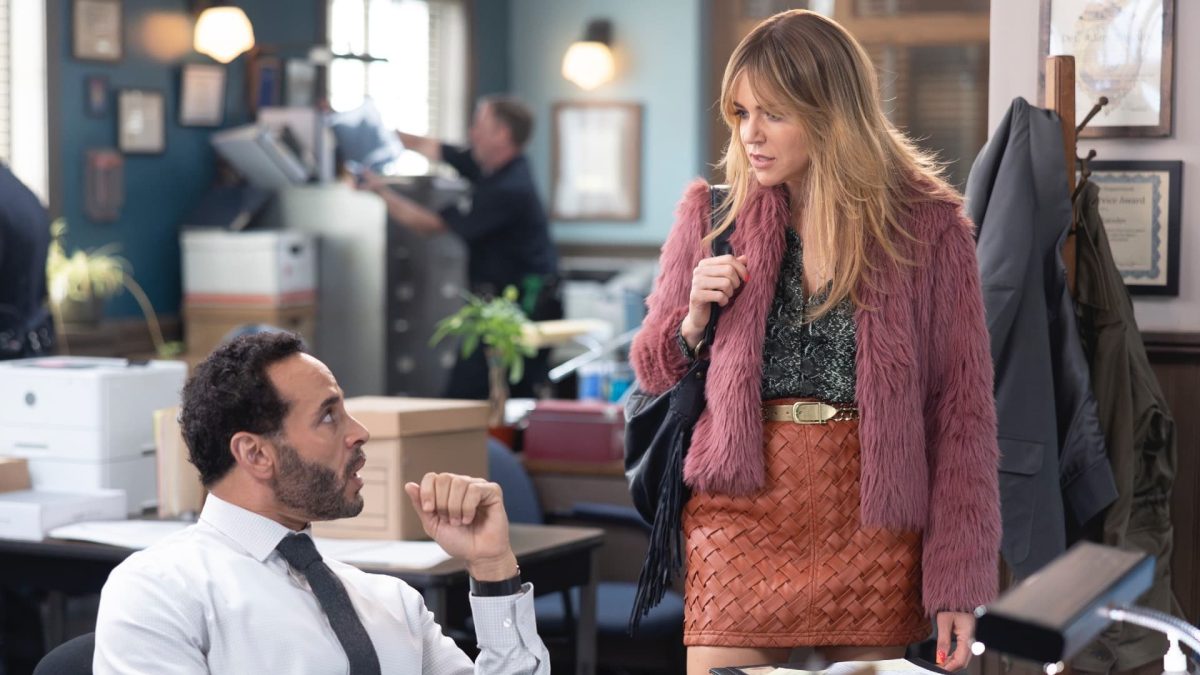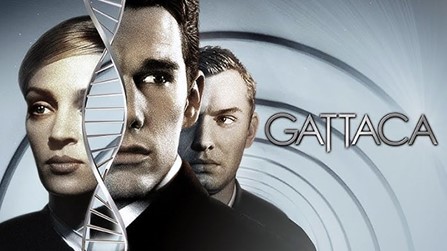Genius characters are a well-loved archetype in media, especially in crime shows. Characters like Sylvester Dodd (“Scorpion”), or Spencer Reid (“Criminal Minds”), or Sherlock Holmes are quite popular either due to some sort of quirk that endears them to the audience, or because their incredible intelligence is intriguing. Their plethora of knowledge surrounding different subjects often serves as an essential piece to the puzzle that is the case they’re solving, and this trend persists in ABC’s new show “High Potential” with their main character Morgan Gillory.
“High Potential” begins with the genius main character going to her job: cleaning the police department. Her actions provide entertainment for the audience as she puts on her bright red headphones and jams out to some music, until she knocks over a box filled with information about the case the major crimes department is in the middle of working on, which is where her status as a high potential individual comes in. She realizes that the detectives on the case have mistaken a victim for a suspect, so she takes to the murder board to fix it, because if she did not, she would spend the night obsessing over the mistake due to her hyperactive brain.
The next time she is seen is in the grocery store with her three kids: Ava, Elliot, and Chloe, insisting that they can make some things at home (who else’s mom has told them that before?) and using a plethora of coupons in order to afford to feed her family as well as showing off her high intellect by calculating the price of her groceries (plus tax and discounts) in her head. Her trip ends with her boarding a bus with a potentially stolen shopping cart and returning home to unpack her groceries.
And then she is brought in for tampering with a criminal investigation. And obstruction of justice.
However, at the station, she outlines the problems she noticed, showing the grumpy to her sunshine, Detective Karadec, (who later becomes her partner in solving crime) and Lieutenant Selena Soto where they went wrong. After Morgan assaults a police officer, Lieutenant Soto asks Morgan to be a consultant on the case and help catch the perpetrators. Morgan and Karadec go through some ups and downs on the case since Karadec does not want her help, but eventually Morgan puts all the pieces together (with a tune playing in the background to indicate to the audience that she has figured something out), and they solve the case. Lieutenant Soto offers Morgan a job as an official consultant with the LAPD, and after mulling it over a bit, Morgan joins the Major Crimes unit.
The thrill of crime shows is enough to draw the audience into the show, and Morgan is enough of a reason to make them stay. She is often decked out in bright colors, fun coats, stilettos, and pencil skirts, which are considered atypical for someone to wear to a crime scene. She connects with many of the characters they encounter on their cases, relating to them in some way whether it be because she shares an experience with them or because she can sympathize with what they feel, whether it be Carmen (a wronged mother) or Sam (a Stanford graduate that was overqualified and underappreciated in her job). Her connections with others not only serve to make the audience become even fonder of her, but also help oppose the stereotype that genius characters like her have low emotional intelligence as a caveat to their high cognitive abilities.
The show not only explores her work life, but a portion of it is dedicated to showing her home life, both past and present. Morgan is a single mom of three kids, and her scenes with them often pair relatable family moments with her high IQ, whether it be using a bunch of coupons and calculating the total of her groceries to the exact cent in her head or her and her genius son Elliot discussing different evidence and what it means as a way of bonding. But it also highlights regular struggles that parents can relate to, such as worrying about whether her fifteen-year-old daughter is dating.
However, there is another layer to her home life, specifically regarding her eldest daughter’s—Ava’s—dad Roman Sinquiera who went missing when Ava was a baby. When she joins the LAPD, she does it with a deal that her boss will look into Roman’s disappearance because while everyone in her life—including Ava—believes that Roman walked out on her because he did not want to be Ava’s father, Morgan feels deep down in her heart that he did not come home that night because he couldn’t, not because he didn’t want to. This backstory proves to be an overarching storyline throughout season one, leaving fans to await a big reveal about what happened to Roman when part two of season one comes out in January 2025.
Like many crime shows, however, “High Potential” can be a bit predictable, especially for regular crime show enjoyers. But, it is hard not be drawn into this show by the characters and their different layers and dynamics, the will-they-won’t-they between Morgan and Karadec, the questions surrounding Roman’s disappearance, the captivating banter between all the characters, and said layers and dynamics are enough to keep viewers captivated, even ones that know crime shows so well that they could be detectives in them.
Whether or not Morgan and Karadec’s adventures in crime-fighting will be the next hit crime show that gets renewed for fifteen seasons or more (looking at you, NCIS) is left to be seen. But if the second part of season one is anything like the first half, it definitely has the potential to get renewed for at least a second season.










